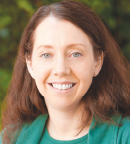
“Only 52.9% of high-risk patients had a genetic test, representing a missed opportunity to prevent ovarian and other cancer deaths among mutation carriers and their families. ”— Allison W. Kurian, MD, and colleagues
Tweet this quote
In a population-based study reported in a research letter in JAMA, Allison W. Kurian, MD, of Stanford University School of Medicine, and colleagues found that genetic testing and genetic counseling are suboptimal among women with newly diagnosed breast cancer.1
Study Details
The study involved 2,451 women aged 20 through 79 years diagnosed with stage 0 to II breast cancer between July 2013 and September 2014 who were identified through Surveillance, Epidemiology, and End Results (SEER) registries of Georgia and Los Angeles County. Surveys regarding genetic testing and counseling were mailed to patients 2 months after surgery for breast cancer.
In total, 773 patients (31%) were categorized as high risk on the basis of the following: age ≤ 45 years at diagnosis; bilateral breast cancer; triple-negative cancer diagnosed at age ≤ 60 years; any relative with ovarian cancer, sarcoma, or male breast cancer; at least two first-degree relatives with breast cancer; at least one first-degree relative with breast cancer for those diagnosed at age ≤ 50 years; Ashkenazi Jewish ancestry; or a family history of a deleterious genetic mutation, including BRCA1 or BRCA2 or another mutation associated with an increased breast cancer risk (eg, TP53). All other patients (n = 1,678) were categorized as average risk.
Genetic Testing and Counseling
Among high-risk patients with breast cancer, 80.9% wanted genetic testing, 70.9% talked with any clinician about genetic testing, 39.6% talked with a genetic counselor, and 52.9% received genetic testing. Factors significantly associated with not receiving testing among high-risk patients were older age and Asian ethnicity.Patients had a mean age of 62 years, 57% were white and 18% were black, and 71% had some college education. Responses were analyzed as weighted percentages to adjust for differential probability of selecting patients by race, stage, and SEER site and for survey nonresponse. Multivariate analysis for risk of no genetic testing included age, race/ethnicity, education, insurance status, household income, cancer stage, and SEER region.
Testing and Counseling Rates
Overall, 66.0% of patients reported wanting testing and 29.0% reported receiving a test. Among high-risk patients, 80.9% wanted testing, 70.9% talked with any clinician about testing, 39.6% talked with a genetic counselor, and 52.9% received genetic testing. Among average-risk patients, 59.3% wanted testing, 35.9% talked with any clinician about testing, 14.4% talked with a genetic counselor, and 17.8% received genetic testing. Among high-risk patients who received testing, 61.7% had an expert genetic counseling session. The most common reasons for not undergoing testing cited by high-risk patients were “my doctor didn’t recommend it” (56.1%), “it was too expensive” (13.7%), “I did not want it” (10.7%), and “my family didn’t want me to get it” (0.2%).
On multivariate analysis, factors significantly associated with not receiving testing among high-risk patients were older age (relative risk [RR] per 1 year of age = 1.04, 95% confidence interval [CI] = 1.03–1.05) and Asian vs white ethnicity (RR = 1.39, 95% CI = 1.04–1.85). Nonsignificantly increased risk for no testing was observed for Hispanic (RR = 1.18, 95% CI = 0.92–1.52) and black ethnicity (RR = 1.13, 95% CI = 0.93–1.37) vs white ethnicity and for household income of $40,000 to $89,999 (RR = 1.09, 95% CI = 0.87–1.35) and < $40,000 (RR = 1.19, 95% CI = 0.95–1.51) vs ≥ $90,000. Nonsignificantly increased likelihood of testing was observed for Medicare insurance (RR = 0.94, 95% CI = 0.78–1.13) vs private insurance and stage I or II cancer (RR = 0.95, 95% CI = 0.85–1.06) vs stage 0 disease. Little or no difference in the likelihood of testing was observed for education of at least some college vs high school or less (RR = 1.00, 95% CI = 0.81–1.23) or for Medicaid or other public insurance vs private insurance (RR = 0.98, 95% CI = 0.76–1.13).
The investigators stated: “In this large, population-based study, most patients reported wanting genetic testing and 29% reported having it. Yet only 39.6% of all high-risk women and 61.7% of tested high-risk women reported having a genetic counseling session. This suggests a gap between need and availability of genetic counseling. Only 52.9% of high-risk patients had a genetic test, representing a missed opportunity to prevent ovarian and other cancer deaths among mutation carriers and their families. High-risk patients most vulnerable to under-testing included Asians and older women, despite evidence that many such patients carry mutations.”
They concluded: “Clinical need for genetic testing may not be adequately recognized by physicians. High-risk patients reported lack of a physician’s recommendation, not expense, as their primary reason for not testing. Limitations of the study included the testing data source being by patient self-report and that the patients lived in only two geographic regions. The findings emphasize the importance of cancer physicians in the genetic testing process. Priorities include improving physicians’ communication skills and assessments of patients’ risk and desire for testing and optimizing triage to genetic counselors.” ■
Disclosure: The study was supported by the National Cancer Institute. For full disclosures of the study authors, visit www.jama.jamanetwork.com.
Reference

